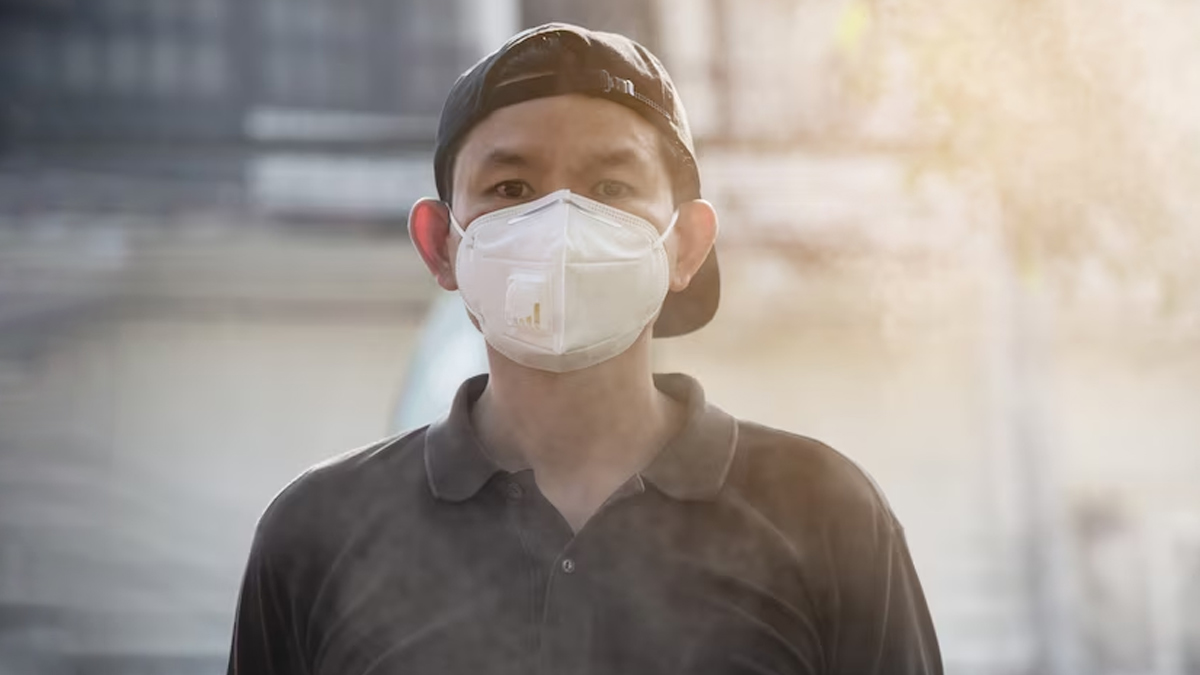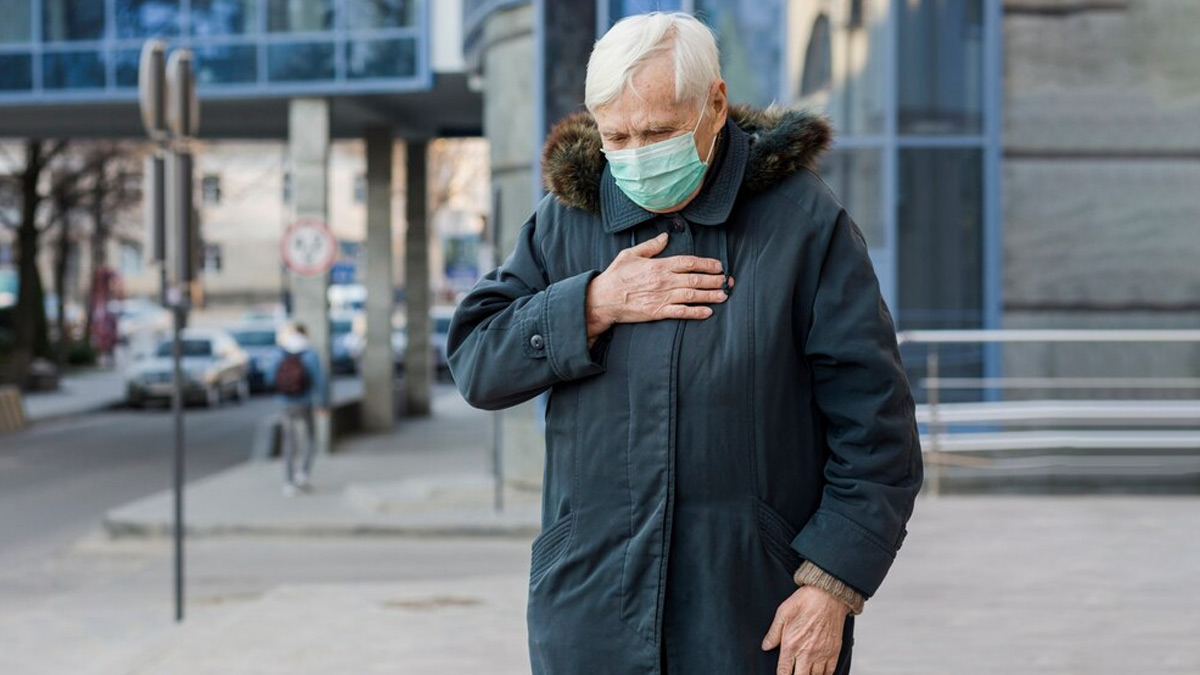
Delhi continues to combat severe air pollution with many areas in the National Capital Region (NCR) witnessing extremely high Air Quality Index (AQI). According to the Central Pollution Control Board (CPCB), the AQI in RK Puram was recorded at 433, in Punjabi Bagh at 460, in ITO at 413, and in Rohini at 451. Usually, an AQI between 0-50 is considered 'good', 51-100 'Moderate', 101-150 'Unhealthy for sensitive groups', 151-200 ‘Unhealthy’, 201-300 ‘Very Unhealthy’ and above 300 is considered ‘hazardous,’ as per aqicn data.
Table of Content:-
Amid ‘severe’ air pollution, heart disease patients remain at great risk. Breathing in poor quality air can affect the circulatory system, impacting heart health and increasing the risk of Cardiovascular Diseases (CVDs). Speaking with the OnlyMyHealth team, Dr Bhupendra Singh, Consultant Cardiologist, Manipal Hospital, Ghaziabad, shed light on the same and listed a few ways heart disease patients can protect themselves.
Also Read: Did You Know That Air Pollution Can Trigger Heart Attacks? Expert Answers
Impact Of Air Pollution On The Heart

“When we inhale poor-quality air, the air pollutants can travel deep into the bloodstream, through the lungs, and then to the heart, putting us at a greater risk of having heart and respiratory conditions,” said Dr Singh, adding, “Air pollutants are very harmful, and they can narrow down the blood vessels and make them harder and narrower.”
Therefore, inhaling toxic air over a long period of time leads to heart diseases, such as hypertension, arteriosclerosis, and arrhythmia.
According to a study published in the Journal Circulation, several environmental air pollutants, such as carbon monoxide, oxides of nitrogen, sulfur dioxide, ozone, lead, and Particulate Matter (PM), are associated with increased hospitalization and mortality due to cardiovascular disease, especially in persons with Congestive Heart Failure (CHF), frequent arrhythmias, or both.
Is There A Danger Of Heart Attack?

Experts believe there is a correlation between air pollution and heart attacks.
Dr Singh said, “Air pollution is known to worsen a patient’s heart condition and eventually lead to the likelihood of cardiovascular events.”
He added, "Air pollution can change the structure of our hearts, which can increase the risk of heart attacks, strokes, and irregular heart rhythms in people who are already at risk. In addition, for individuals with a condition called heart failure, air pollution can further reduce the ability of the heart to pump blood as required, which can eventually lead to a heart attack."
A preliminary study to be presented at the American Heart Association’s Scientific Sessions 2023, found that spikes in PM2.5 due to summertime wildfire smoke versus rising levels of PM2.5 during the summer and winter months in a mountain valley region of Utah was significantly associated increased health care visits for heart attack and unstable chest pain.
Another study published in the Journal Circulation found that exposure to any level of four common air pollutants, such as PM2.5, nitrogen dioxide, sulfur dioxide and carbon monoxide, could lead to a quick onset of acute coronary syndrome.
"The adverse cardiovascular effects of air pollution have been well documented. But we were still surprised at the very prompt effects," said Haidong Kan, lead author and a professor in the School of Public Health at Fudan University in Shanghai.
Also Read: Chest Pain During Winters: Is It Normal Or A Sign Of Winter Heart Attack?
Symptoms To Watch Out For
Due to high pollution levels, people with heart disease should keep a watch on certain symptoms they may experience. These include:
- Chest pain
- Shortness of breath
- Heart palpitations
- Unusual fatigue
- Lightheadedness
What Heart Disease Patients Should Do To Protect Themselves

Amid such severe air pollution, wearing a mask, avoiding outdoor activities, and investing in an air purifier are some of the steps you can take to protect yourself from poor air quality.
In particular, heart disease patients should make it a habit to check the air quality in their area, especially when the city faces increased levels of pollution, Dr Singh advised.
He said, “Poor quality of air is not only associated with coughing but it also causes additional symptoms like shortness of breath, chest pain, and palpitations.”
“People suffering from chronic CVDs should not be exposed to an AQI level greater than 100; exposure to an AQI of more than 500 may lead to severe medical consequences due to extreme pollution,” he concluded.
Also watch this video
How we keep this article up to date:
We work with experts and keep a close eye on the latest in health and wellness. Whenever there is a new research or helpful information, we update our articles with accurate and useful advice.
Current Version